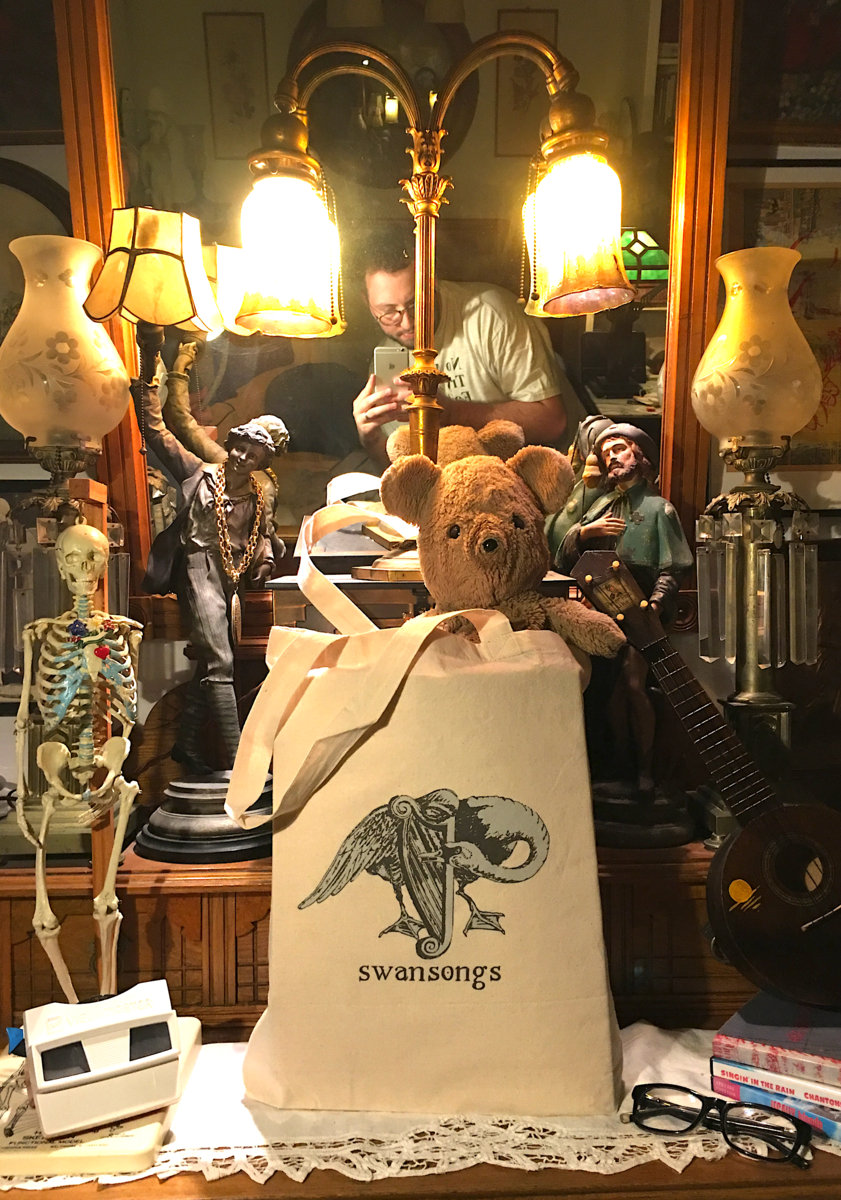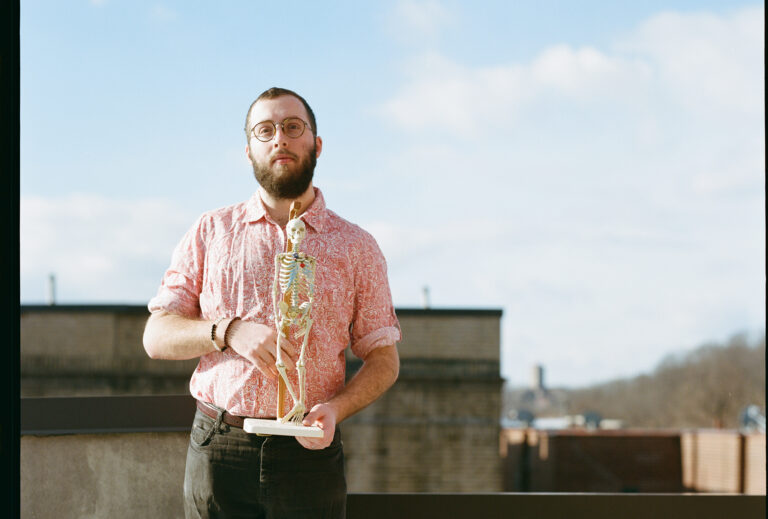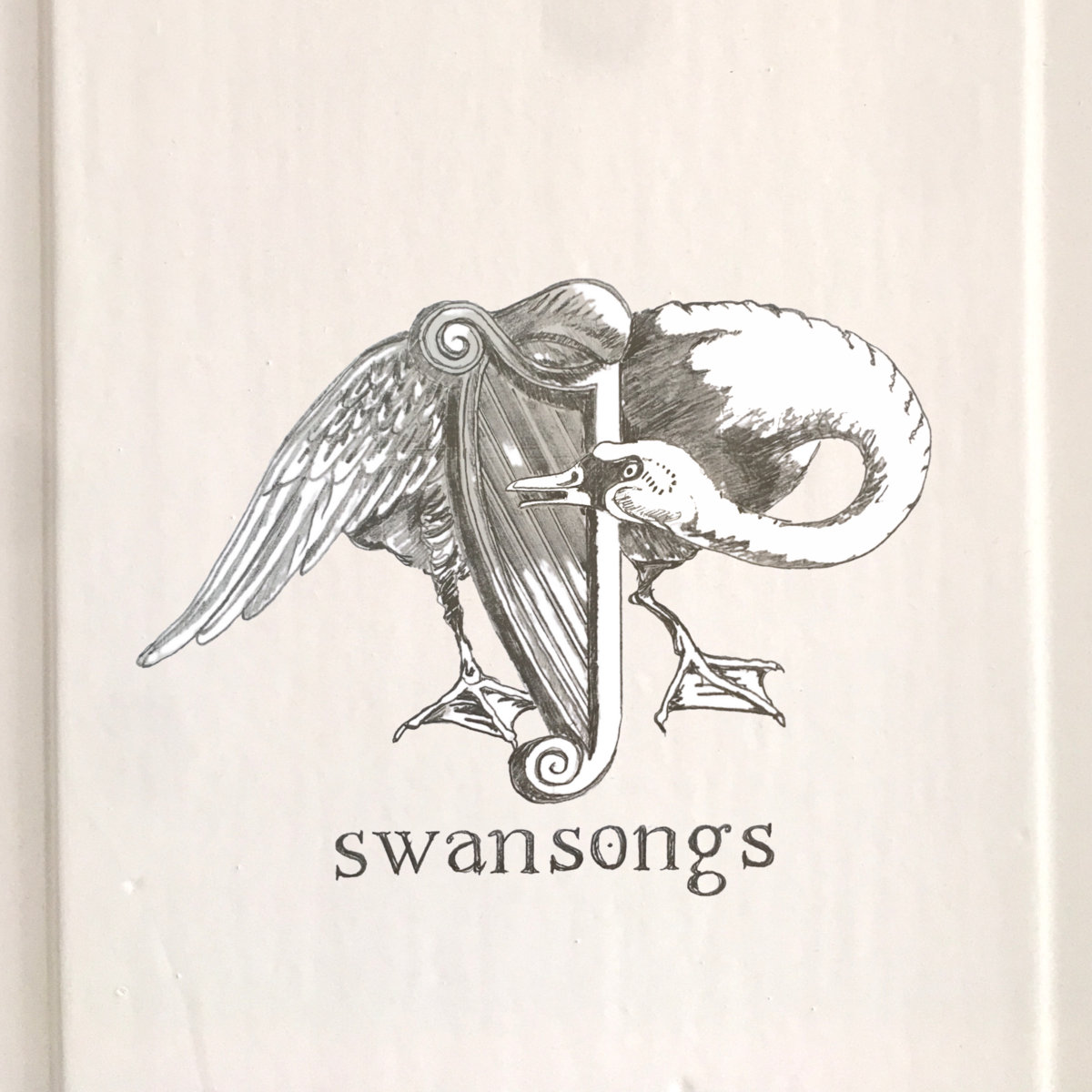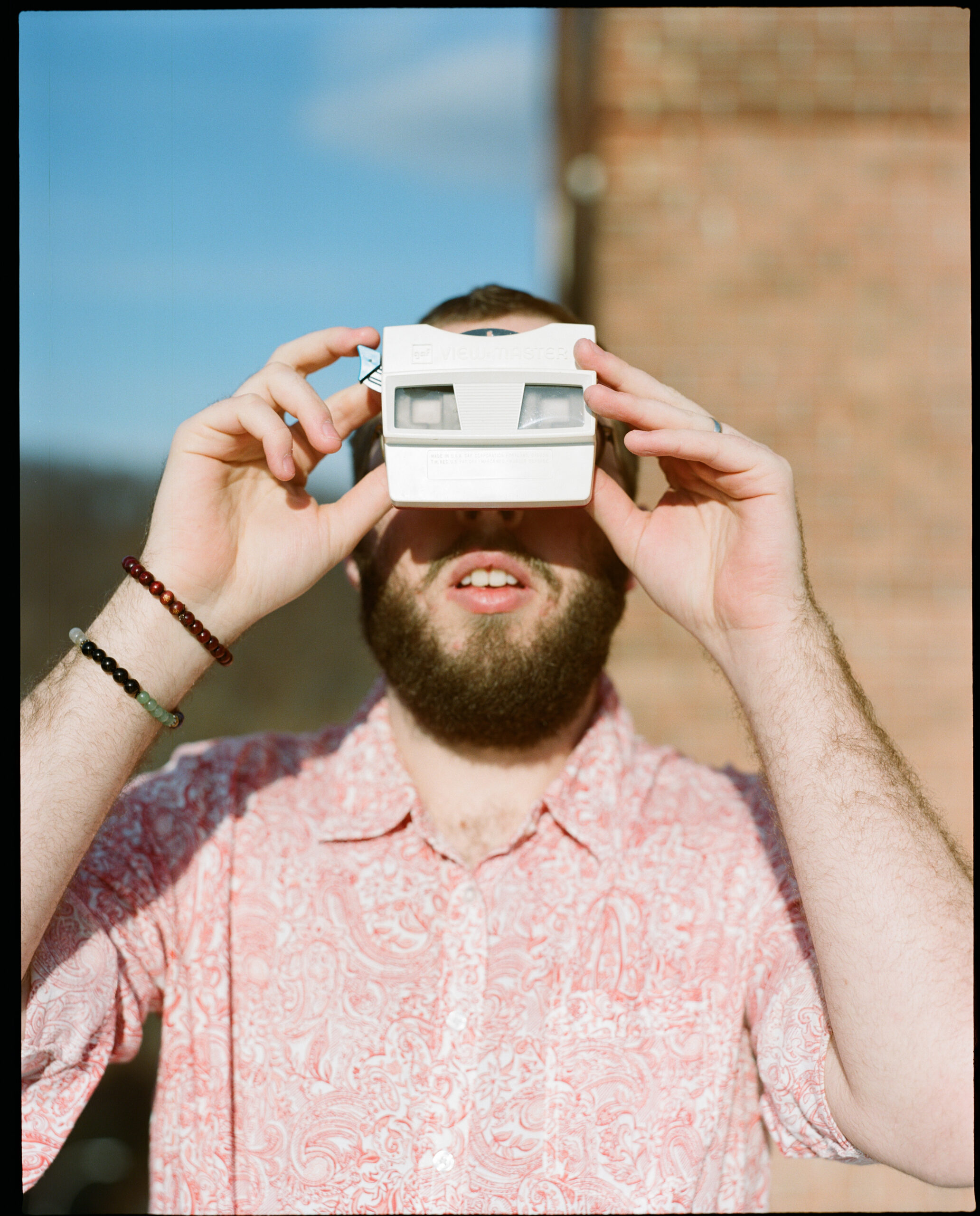Berlin-based songwriter and composer Jake Bellissimo has been on our radar for a number of years. From their early releases under the moniker Gay Angel, to more recent work under their own name, Bellissimo creates ambitious and distinctive music that sits at an intersection between grandly romantic orchestral pop that is indebted to the classics of musical theatre, and the hushed intimacy of twenty-first century bedroom pop.
Jake Bellissimo returns at the end of this month with a brand new album. Titled Swansongs, the record comprises of 24 songs that Bellissimo says aim to forge “melodrama into melody…[exploring] love, loss, and all of the moments in-between.” Ever the maximalist, the album again focuses on big arrangements, and features choirs and string quartets and even a carillon.
Jake was kind enough to answer some questions on the new record, so read on below for an in-depth look into the album’s conception, their creative process and the value of art in these tumultuous times.
Your new album Swansongs is released on November 29th. How long have you been working on it, and what was your initial inspiration to start writing?
Truthfully, I finished writing the album in 2017 and the mastering was done (by Alessandro Paderno) in 2018. So, it’s been a few years in the making, but the last 2 years were spent just making sure I could release it in a way that did it justice. I began writing the album shortly after I met the man who is now my husband. It was a weird time, I was touring around the US frequently, but whenever I was in the area I would play a show and drive to him in New York City to spend the night. However, this relationship forced me to confront complicated feelings that I had never had to face before. John (my husband) is 34 years older than me – I had usually dated men who were significantly older than me, but this was the first time that the relationship seemed like anything but temporary.
After realizing how strong our connection was, I became overwhelmed with feelings about mortality and our age gap. What does it mean to love someone who will likely not always be there to love you?
Writing this album was my attempt at processing those feelings. Not all of it has to do with John, but all of it has to do with mortality. At the time I knew others who were passing, friends who were hopeful about their futures, and ways in which I was scared about the uncertainty of living. But what I learned is that – though nothing is guaranteed – there’s an immense power in saying how you feel when you feel it, even if you don’t know exactly what it means yet. These songs kinda function in that way, describing moments that I experienced while processing the situation.
A “swan song” technically refers to the last, most beautiful song that a swan sings before dying. This isn’t my last album by any means, but given the feelings I was dealing with at the time, I wanted to see if I could write each song like it was my last.
Your press release says that the record has an emphasis on storytelling, and I was wondering where these stories come from. Is it a direct reflection of your own experiences, or were you spinning fictional stories as you wrote the songs?
In general, all of the stories I talk about are things that have either happened to me or people I know. The emphasis on storytelling is more just to secure what I believe my role as a songwriter is – to describe things.
Although the album is a “solo record,” released under your own name, but like most of your music there is still that orchestral approach that sees you involve a string quartet, choirs, etc. What is the importance of these grand arrangements in your songwriting? What do they provide that is impossible say with just guitar and vocals?
I think one of the things I love most about music is that it can allow you to mythologize your own life. Stories about mundane, everyday things can become profound statements if you find the right way to tell them. In high school I had a lot of trouble writing music because I thought that you had to have some big mission statement to communicate to others. However, I later found out that just telling stories about things that have happened gives them meaning and serves as a reminder that existence isn’t meaningless.
That’s a bit of an abstract way to say that I like big arrangements, but yeah, I think adding more and more instruments to recordings that are ultimately done in my bedroom add a sort of fantasy to the whole thing. Though there are moments where I just play guitar and sing, they’re typically meant as moments of contrast. I’m sure my penchant for large arrangements also comes from my interest in campy showtunes and early 20th century pop music, but I think at this point it’s also just how I express myself. I’m eternally grateful to all of the friends who have shared their musical talents to make many of those arrangements possible!
You mentioned that the album is a “more refined” sequel to floral and I’m interested in how your songwriting has changed since then. What did making floral teach you? And is it difficult to move on after such a mammoth project?
It’s hard for me to look back on floral in a positive light, to be honest. Though I think it set me up for what I do now, in retrospect it feels like a cry for help. I was dealing with a lot of trauma, mental illness, and substance issues at the time and it shows for me both on the album and how it was made. Simply put, writing over 200 songs and producing an 100-song album in half a year does not give you time to do much else!
That being said, I think I did learn a lot from it. By making floral I essentially taught myself how to produce music the way I wanted to and how to write arrangements. There were also over 60 people who helped out with that album and I definitely learned during that process about how many wonderful, kind friends I had at the time.
However, the most important thing I think I learned from floral is that I love large, long-format projects! That’s why I’ve been thinking of Swansongs as a sequel to floral in a way. Similar to books of poetry, I love long albums that you can listen to in one sitting just as easily as you can shuffle through them, digesting each piece slowly. After writing floral, I made The Good We’ve Sewn as a way to tighten up my production and arrangements. However, after that, I realized that it was once again time to use my new production methods to once again make a longer album, resulting in Swansongs.
Is it strange to be releasing an album during these uncertain times? What role do you think music/art plays in times of struggle?
Yes and no! The strange part is mainly just that there are no shows to promote the album with. Though we’ve been doing small shows in Berlin since August, after carefully curating this album for years, I just happened to choose a release date that would be during the city’s second lockdown (the entire month of November). Oh well. But a lot of things have also changed since August and even if I rescheduled it for December, I wouldn’t feel comfortable asking people to come out to a gig. So, we’re making it an online gig, which is definitely a sign of the times!
The not strange part is that – like I said – this is an album about mortality. I had always planned to release the album in 2020, but as the pandemic began happening and I cancelled plans to tour the album, I decided to wait a bit. However, since it’s been clear that this “new normal” will be here for a while, I wanted to keep with my plans and release it. In a way, it feels fitting – even outside of the pandemic, there’s a lot of worry infiltrating cultural discussions. That’s why releasing this album now is my treatise on embracing hope.
Swansongs will be released on 29th November and you can get it now via the Jake Bellissimo Bandcamp page, including in a bundle with a Swansongs tote bag.




